Malaysia should really be better known as a budget travel destination. Malaysia represents fantastic value for money at almost all levels. Although the prices there are higher than its neighboring countries, it is suitable for the high standards of infrastructure. Costs for food, lodging, fuel and internal transportation are very reasonable. If you want to explore Malaysia on a budget, the following tips are helpful for you.
1. Budget airlines offer travel savings, but watch out for airport extras
Budget flights are currently the only means of crossing between Peninsular Malaysia and East Malaysia (Borneo), which are separated by hundreds of miles of sea. There are Air Asia, Malindo Air and Firefly offering cheap flights throughout Malaysia and other hubs in Southeast Asia. However, you should keep in mind watching for hidden extras.
Fares are advertised with rock bottom prices on the internet. If you book well in advance, a domestic flight can cost as little as US$30. However, you should remember that these prices don’t include taxes or airport fees. This tends to be a bigger issue for international routes. For example, airport fees for domestic flights tend to be fairly modest, RM11 (US$2) for flights leaving from Kuala Lumpur.
 2. Travel by bus when you can
2. Travel by bus when you can
If you’re staying in either Peninsular Malaysia or East Malaysia and don’t plan to visit the other half of the country, you can get almost anywhere you need to go by bus. There are dozens of operators, which makes for competitive pricing and a good chance of getting a seat. English is widely spoken in Malaysia, and Bahasa Melayu (Malaysian) is written in the Roman alphabet. Therefore, there are few issues with navigating timetables.
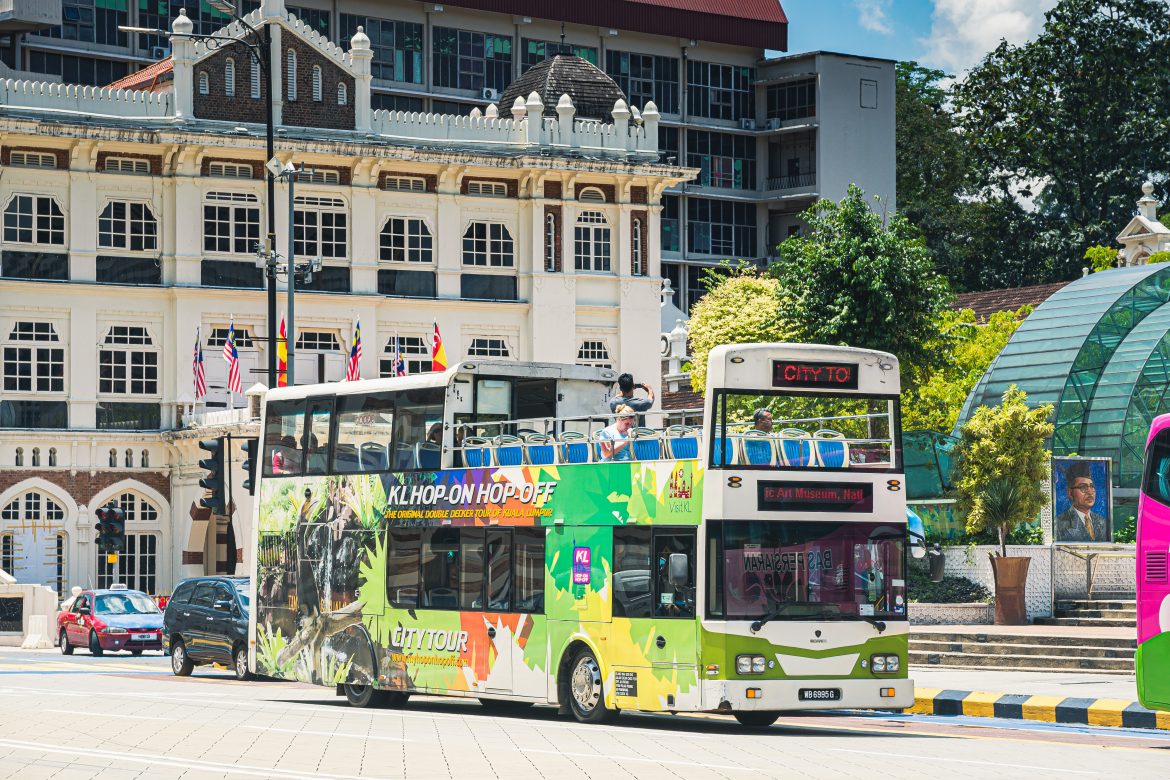 3. Get to Malaysia’s islands by ferry
3. Get to Malaysia’s islands by ferry
Of course, you can fly to Malaysia’s tropical islands. Nevertheless, there’s still a little romance in taking a ferry to destinations such as Langkawi and Penang. And if the nostalgia of traveling by sea isn’t enough, it’s also cheaper and better for the planet. The ferry to Langkawi costs RM60 (US$14) – a fraction of the cost of arriving by air – while the old-fashioned car ferry to Penang costs just RM1.20 (US$0.30). In fact, Penang offers savings all-round as it’s closer to the mainland and less oriented towards beach tourism.

4. Cheap transfers to and from the airport
If you fly into Kuala Lumpur, the fastest way into town is the zippy KLIA Ekspres, an air-conditioned train with onboard wi-fi. It makes the run between Kuala Lumpur International Airport and KL Sentral station in just 30 minutes. A ticket will cost RM55 (US$13), a big saving on the cost by taxi. The cheapest option is the air-con Express Coach bus, which takes 45 minutes to an hour to reach the center of KL (sometimes longer, depending on traffic), and costs just RM10 (US$2.40).
In other cities, your choices may be limited to taxis (faster, more expensive). On the other hand, you can choose buses (cheaper, but invariably slower, so there’s the inconvenience factor). Summoning a rideshare may get you a cheaper fare heading out to the airport.
5. Get around cheaply in town
The best choice is using Grab, the Southeast Asian do-everything app that also provides Malaysia’s most popular rideshare service. With reliable internet access across Malaysia, Grab functions in all major cities, and plenty of smaller hubs.
Alternatively, stick to local buses and urban mass transit networks. Kuala Lumpur’s LRT and MRT urban rail services are air-conditioned, Moreover, they can get you to most sights in the center for just a few ringgit.
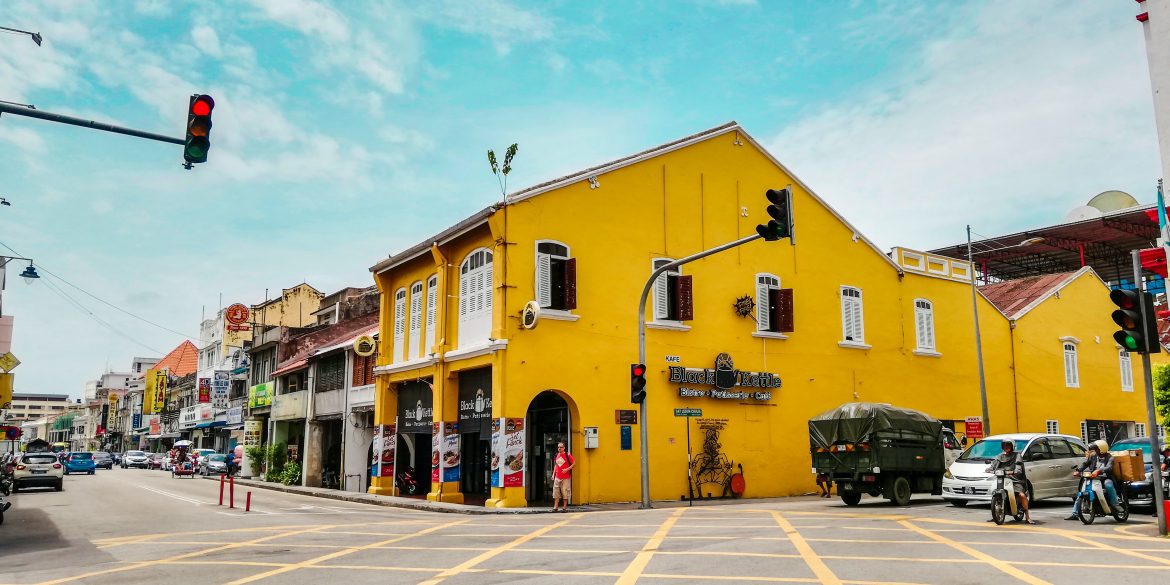 6. Explore on foot for free
6. Explore on foot for free
There’s a lot of interesting things when walking in historic areas such as Chinatown in Kuala Lumpur, Jonker Walk in Melaka, George Town in Penang and the city center of Kota Kinabalu. A walk is a chance to admire historic architecture, sip coffee in Chinese-run kopitiam cafes, visit colorful temples, clan-houses and mosques, and drift around streets lined with nostalgic Malay shophouses. It’s a great way to get a sense of the impressive diversity that is Malaysia’s most attractive asset.
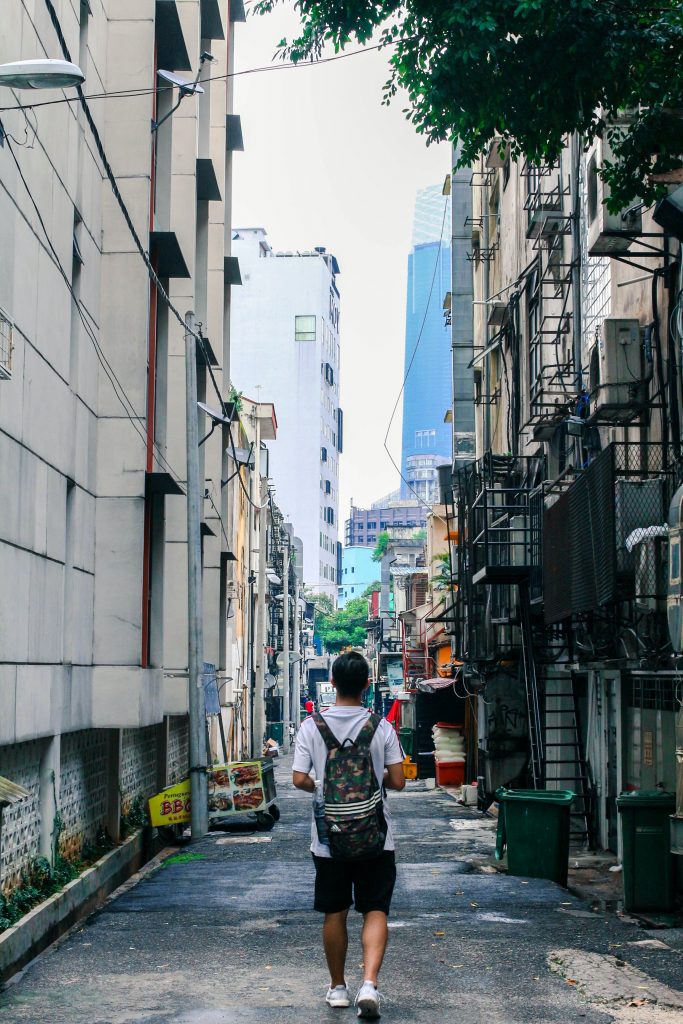
7. Eat cheaply and be merry
Malaysian food is cheap, plentiful and delicious. Dining out in Malaysia is not just fiscally prudent, it’s the best way to dive into the culture and history of a nation that stands at the crossroads of China, India, and dozens of Southeast Asian maritime kingdoms. If you eat at establishments targeting locals, you will not pay more than RM70 (about US$17) for three meals a day.
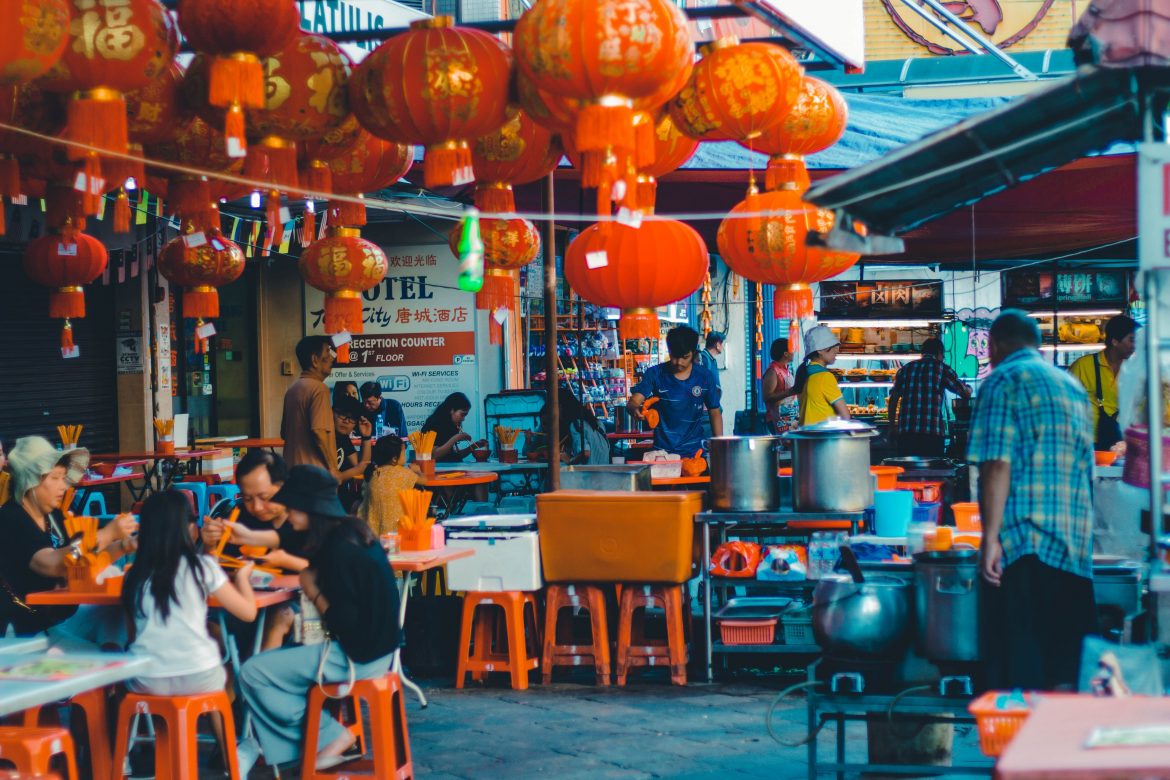
8. Eat like a local at hawker stalls and kopitiam
Outside of some high-end places in cities such as Kuala Lumpur and George Town, restaurants in Malaysia are not too expensive. However, you’ll find much cheaper food, and often better gastronomic quality, if you eat at hawker centers and kopitiam (Malay-style cafes).
Street food stalls can be found throughout Kuala Lumpur, Melaka, Penang, Kota Kinabalu, Kuching and other major (and minor) cities. They’re particularly common at transport hubs and in shopping areas. Old school kopitiam serves small cheap eats as well as Malay-style coffee, and many specialize in a single dish. If you do not know what to choose, just order what everyone else is having.
9. Have a dinner at a night market
Visitors can head to the nearest pasar malam, or night market, for an evening meal. These nighttime streetside hawker markets come with drink stands too, and family-friendly entertainment in the form of karaoke.
The point for most visitors though is the food, which is invariably cheap and delicious. The night market in Kota Bharu, way off the tourist track in Kelantan, is a standout example of the genre, but the better-known night markets in Kuala Lumpur and Penang are also justifiably famous.
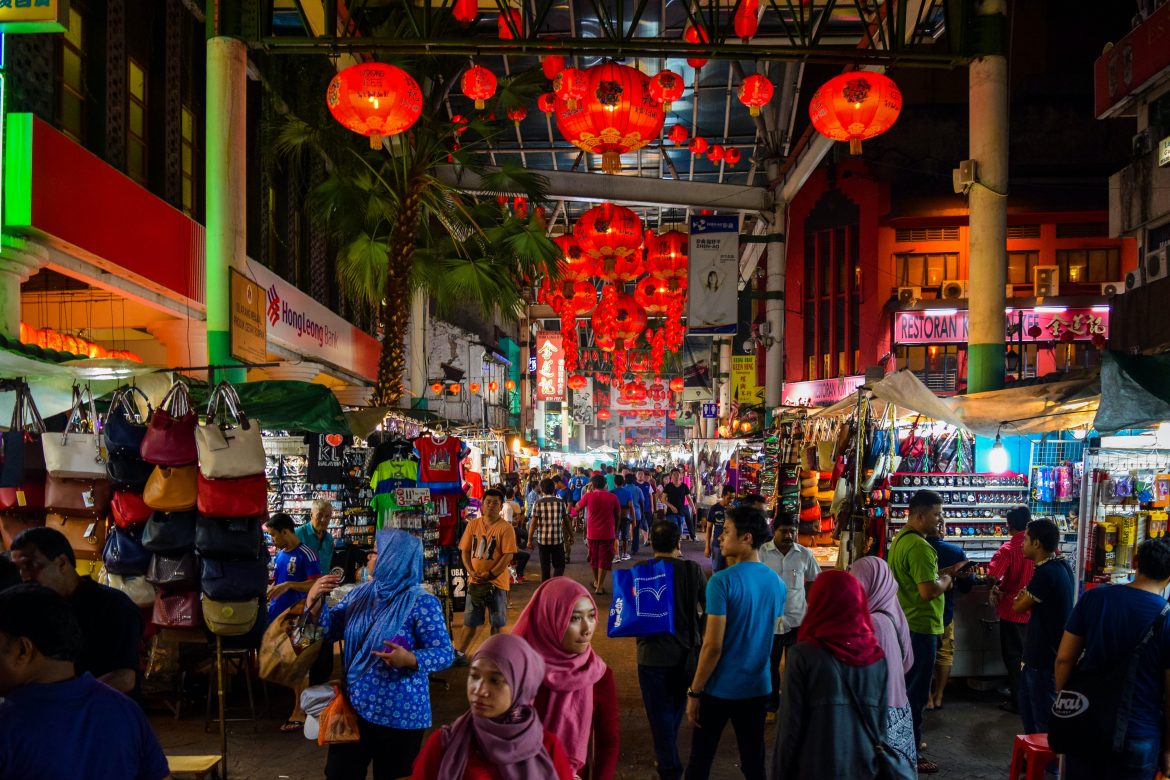
10. Festivals offer some of Malaysia’s best free entertainment
With multiple religions feeding into Malaysia’s rich culture, festivals kick off in Malaysia every month of the year. They offer a fascinating window into the culture of the country. January is a particularly good month for celebrations. Some years, the month sees both Chinese New Year (which can also occur in early February) and Thaipusam, an enormous Hindu celebration that is of utmost importance to Malaysia’s largely Tamil Indian population.
August is another great festival month, with the George Town Festival celebrating Penang’s diversity, arts, and culture, and the Chinese Hungry Ghost Festival bringing color to Chinese communities across Malaysia.
About Lux Travel DMC
Opened in 2005, we – Lux Travel DMC is heading at customizing unique, private and 5-star tours. We care about your feeling. On what, we work to design a tailor-made and unforgettable journey that meets all of your demands. With almost 99% of satisfaction, 60% of repeat client rate, and good comments on TripAdvisor, we are proud to say that our company is one of the best tour providers in the region. We guarantee professionalism and responsibility in protecting the environment of the visited places while promoting local tourism towards sustainability.
Contact Us Now:
- Address No.456 Lac Long Quan Street, Tay Ho District, Hanoi, Vietnam
- Phone: (+84) 4 3927 4120
- Email: sales@luxtraveldmc.com
- Hotline: +84-336-276-996
- Website: https://luxtraveldmc.com
